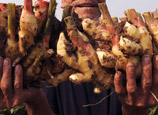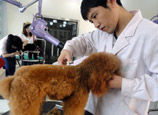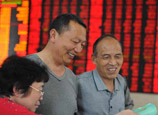
In 1968, when I was in high school, a book titled The Population Bomb was published. The author, Paul Erlich, began the book with this statement: “The battle to feed all of humanity is over. In the 1970s hundreds of millions of people will starve to death in spite of any crash programs embarked upon now. At this late date nothing can prevent a substantial increase in the world death rate…” I knew very little about farming then, but was frightened by the vision and wondered if anyone could prevent this future state.
Fortunately, due in large part to the individual dynamism and genius of a man named Norman Borlaug, this dire prediction did not come true. Borlaug, along with Yuan Longping and other researchers identified new seed varieties for rice, wheat and maize, launching the “Green Revolution” in the 1960s that helped farmers double and triple their yields around the world.
But the benefits of the “Green Revolution” didn’t reach every region of the world; yields in Africa are still dismally low. Climate change has contributed to an increase in droughts and floods in tropical regions, which is a huge challenge for smallholder farmers living there. Today, almost a billion people are affected by severe hunger and poverty. At our foundation, we have been looking for the best innovations to help drive a new “Green Revolution” in Africa.
China is one of our key partners, with rich experience and deep expertise in agriculture, which can help accelerate progress in poor countries. China is also a world leader in rice breeding.We are thrilled to be partnering with the Chinese Academy of Agricultural Sciences to develop a series of new rice varieties, Green Super Rice. The new rice varieties will mean farmers don’t need to rely as much on fertilizer and water. Green Super Rice has been introduced to some African and Asian countries for early trials. In some pilot countries, it has helped smallholder farmers increase production by 20%. One of our colleagues who returned from studying the test field said she saw farmers, after harvest, holding rice in hands exclaiming “This is indeed the gift from heaven!” But the researchers know it is the gift of Chinese agricultural innovation to the world.
The innovations in gene sequencing, led by Chinese scientists at the Beijing Genome Institute (BGI), could also lead to dramatic productivity gains. Imagine the analogy of a large public library with rooms full of books. We used to have to use the card catalogue and browse through the books to find the information we needed. Now we know the precise page that contains the piece of information we need. This greatly accelerates plant breeding process. It is exciting to be working with some of the best scientists to drive progress for the poorest people in the world.
I am full of hope for cooperation with China, and expect China’s innovation technology to serve as important impetus to African development, helping African people enjoy healthy and efficient life.
Read the Chinese version: 比尔·盖茨:中国农业创新助力发展
















 Brazilian self-defense martial art gains popularity in Beijing
Brazilian self-defense martial art gains popularity in Beijing


![]()
